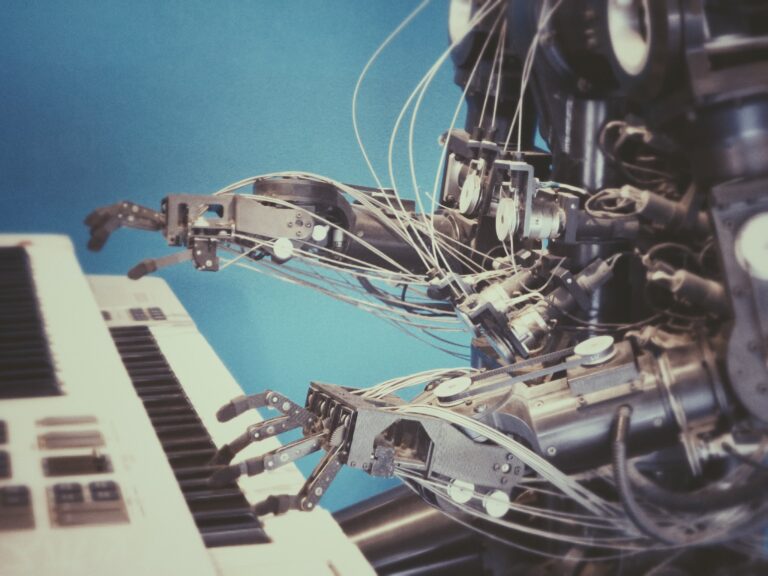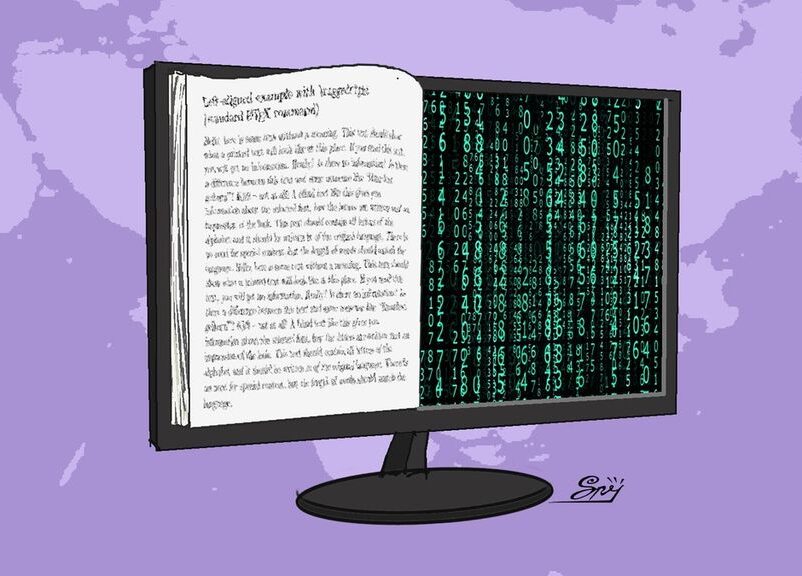
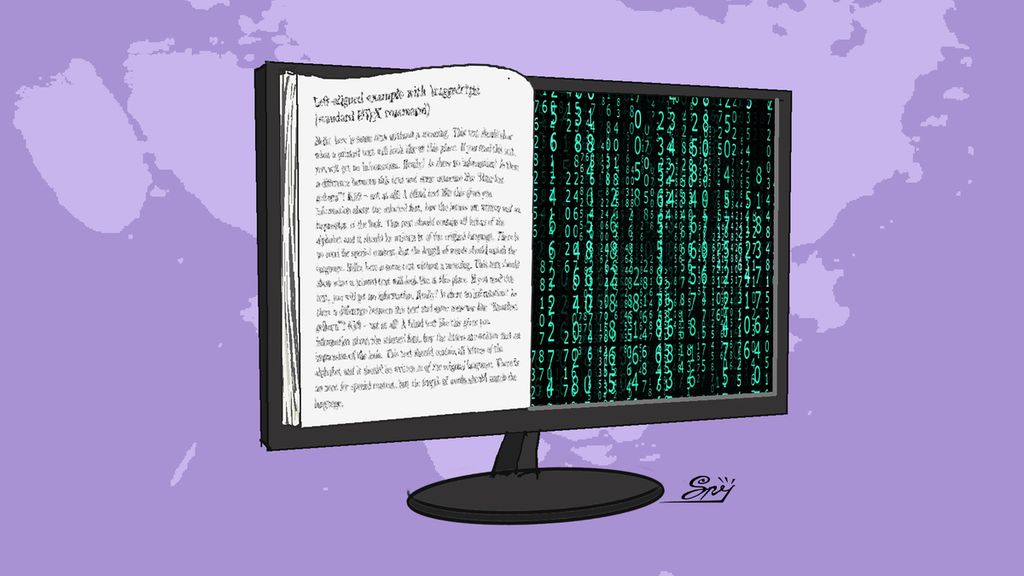
Currently, we are facing an onslaught of artificial intelligence that is almost unstoppable. Of course, the presence of artificial intelligence has an impact felt by various parties. People ultimately rely on and try to take advantage of the existing opportunities, including in the world of writing.
Artificial intelligence (artificial intelligence/AI) can be commanded to produce text like a writer. At the same time, we are forced to reinterpret the true meaning of creativity and uniqueness of human thought. Friedrich Nietzsche, in his work, Beyond Good and Evil, has one message that “It is not the strength, but the duration of great sentiments that makes men great“.
The message can be relevant when evaluating the capabilities of AI in writing – where machines may be able to create complex and informative texts, but often fail to maintain the emotional nuances and depth of human thought.
This reminds us that behind the efficiency offered by advanced technology, authenticity and emotional depth remain irreplaceable qualities that can only be possessed by human works. Is that true?
Also read: Artificial Intelligence and the Future of Humanity
In his book entitled AI Superpowers, Kai-Fu Lee discusses how the presence of artificial intelligence in the world of writing has raised a series of profound questions about the future human creativity.
Although the use of AI in writing offers efficiency and innovation, many criticisms have emerged, especially from academics and writers. One of the major concerns is the loss of human nuance and analytical depth typically found in human-presented writing.
Artificial intelligence (AI), despite its extraordinary sophistication, often produces texts that lack empathy and a deep understanding of social and cultural context, which is crucial in many aspects of writing, especially in literary and academic works. Additionally, there is concern about the potential for AI to diminish the authenticity of work by producing uniform content, which could reduce intellectual diversity and creativity.
Further question, if writing can use AI, what about the books we will publish in the future?
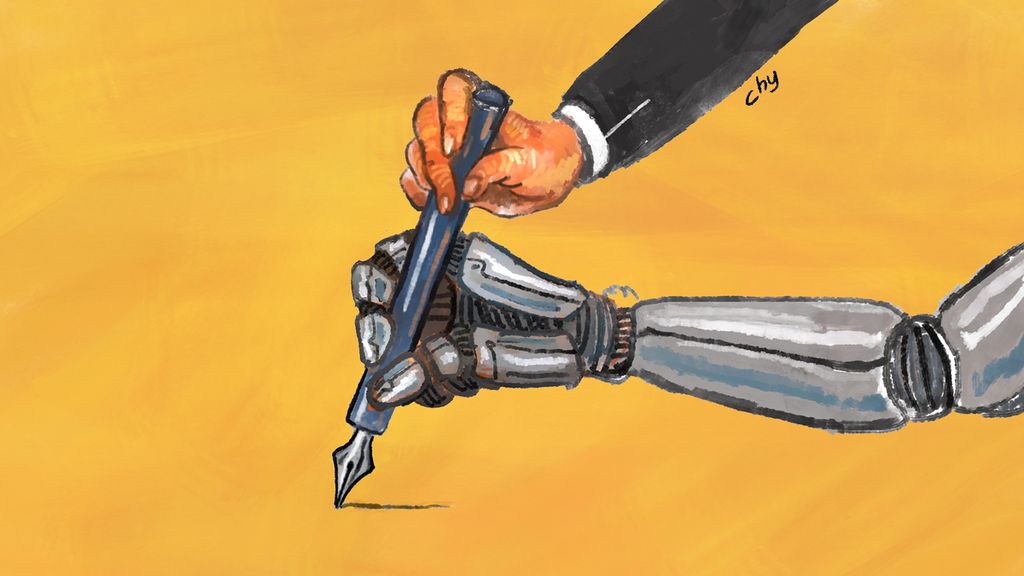
The future of books
As technology continues to advance, books as a medium of knowledge and entertainment may undergo drastic changes in the way they are produced, distributed, and consumed. There are also concerns that the use of AI in writing and publishing books may exacerbate issues such as privacy surveillance and copyright.
This anxiety is reinforced by our difficulties in distinguishing between AI-generated and human-generated results. AI, with its tendency to produce text based on algorithms that prioritize efficiency, has the potential to produce homogeneous works – losing the uniqueness and depth that can only be achieved through human touch.
This not only threatens the intellectual and creative diversity in the field of literature, but also endangers the unique deep experiences that books possess. Works produced by AI may meet certain standards in terms of quantity and accessibility, but often lack in quality and emotional resonance, thus diluting the role of books as mirrors of authentic human experiences and thoughts.
It is important for society and policy makers to formulate strategies that limit the use of AI in creative writing.
Moreover, the position between human writers and AI algorithms in the creation of literary works or other forms of writing raises serious questions about the future of language and creative expression. Books are not only a container of information, but also a medium for transmitting culture, emotions and deep life philosophies.
As AI begins to dominate this creative space, we risk losing the texture and resonance that only human interaction with its language, which has been cultivated throughout the long history of civilization, can provide. The implications of this phenomenon may be more than just a change in the way we write; it can be a shift in the way we think and feel, affecting the essence of humanity itself.
In an effort to ensure that books remain a source of intellectual and emotional wealth, it is important for the public and policymakers to formulate strategies that limit the use of AI in creative writing. We must advocate for responsible limitations, ensuring that this technology is used as a complementary tool in the creative process, rather than a replacement for it.
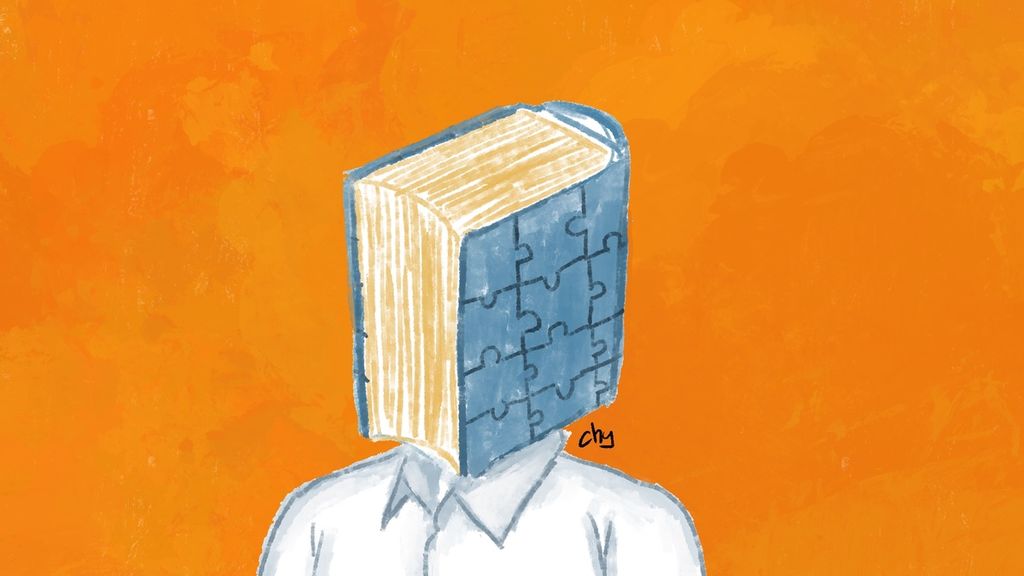
Furthermore, in the academic field, the challenges presented by AI in writing become more complex and crucial. In academia, the accuracy and authenticity of writing are not only important for scientific integrity but also essential in advancing knowledge.
Artificial intelligence used to write papers or scientific articles may produce text that appears convincing on the surface, but often lacks a deep understanding of the theory and context necessary for truly meaningful analysis.
This issue mainly arises in disciplines that require critical reasoning and abstract thinking, such as philosophy and social sciences, where nuances of arguments and theoretical connections cannot be fully replicated by algorithms.
Also read: Library Services and Generative Artificial Intelligence
The presence of AI in academic writing poses a risk of plagiarism and intellectual integrity. In this context, it is important for academic institutions to establish clear guidelines regarding the use of AI in scientific writing, ensuring that any work involving AI is acknowledged transparently and used ethically to support, not replace, human researchers.
Therefore, in a world that is increasingly digitized and dominated by data, we need to revisit classic books that offer an escape into a world where human values and interpersonal interactions are still so prominent. Reading classic books becomes a kind of spiritual journey that takes us back to an era where narratives were built through deep perception and thoughtful contemplation, rather than through structured and calculated algorithms.
Books by previous writers have the potential to remind us of the importance of introspection and internal dialogue, components that make us human. They teach us to appreciate the beauty of language, the power of rhetoric, and the subtlety of metaphors, all of which are aspects that are often overlooked in texts produced by AI.
Wawan Kurniawan, Social Psychology Researcher at the Political Psychology Laboratory, Faculty of Psychology, University of Indonesia
Twitter: wnkurn

Wawan Kurniawan


